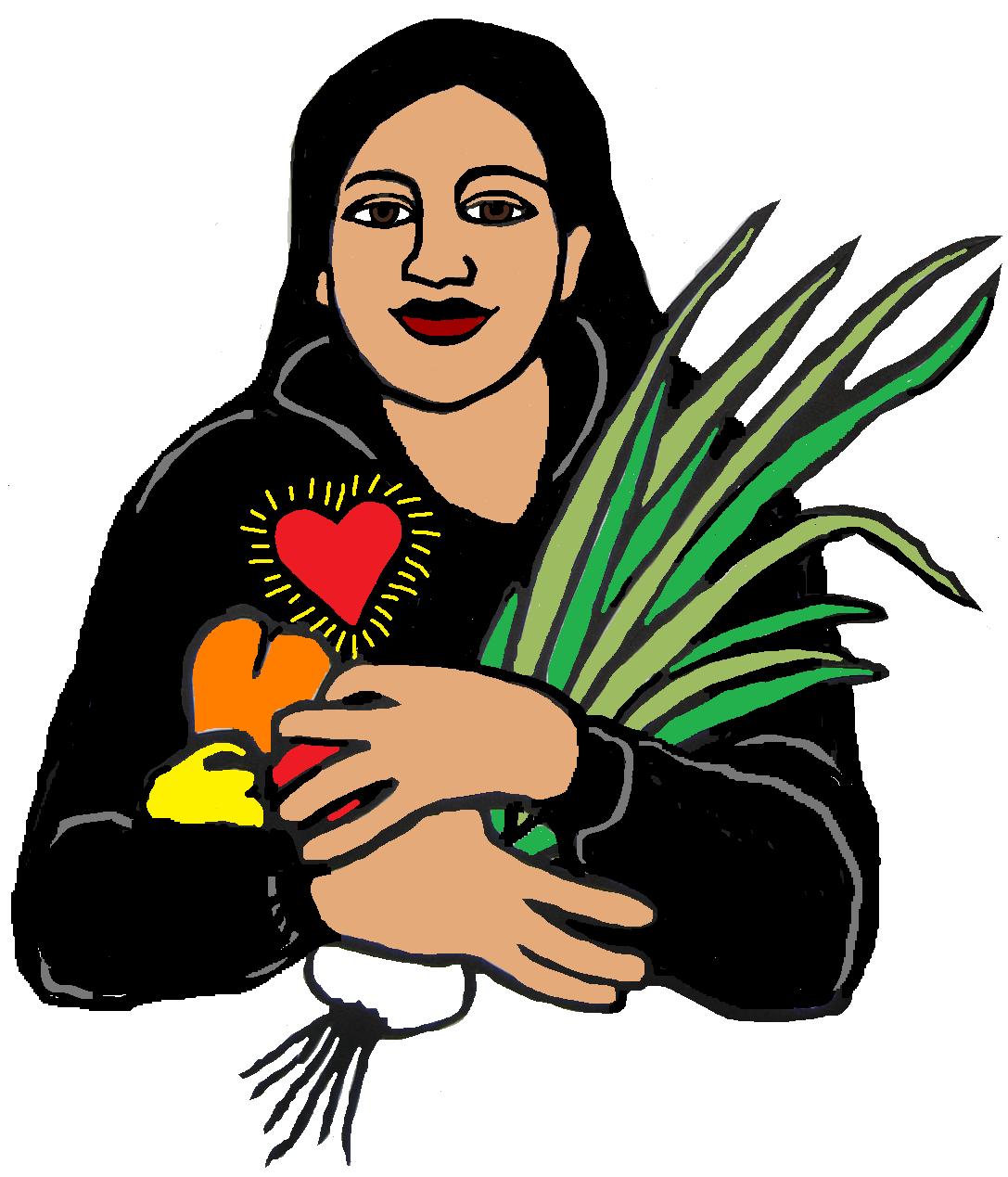Nelida was born in a subsistence farming community in Oaxaca, Mexico. She escaped an abusive alcoholic household at 14 by going to live with her (soon to be) husband’s family, who took her in, then took every opportunity from that moment forth to remind her what a burden she was for them.
After marrying at 16, the young couple migrated north to the US in search of a better life where they found farm work. They toiled 12 years on commercial farms in California, then headed further north, seeking farm work in the lush Skagit Valley in Washington State. They added children to their household until they were nine in all…plus a steady stream of cousins, brothers, nieces, nephews, uncles, and others who’d joined them in their search for the good life. With family, Nelida’s work multiplied: farm worker by day, Oaxacan mother/wife by night. Life in Washington wasn’t exactly the American dream, but Nelida knew it was better than the nightmarish situation her relatives faced back in Oaxaca. Then, one day, things took a turn for the worse.
One of Nelida’s sons fell violently ill. When the traditional herbal remedies she learned from her grandmother failed, Nelida pleaded with her husband to take the boy to the hospital for tests. Her husband refused, petrified of hospital bills (he had no health insurance) and of being fired for missing work. But a man’s greatest fear is no match for a mother’s love. She looked her husband straight in the eyes and told him, “Si tu no eres lo suficientemente hombre para salvar tu hijo, yo mismo le llevare’ al hospital.” (If you’re not man enough to save your son, I’ll take him to the hospital myself.) She didn’t have a driver’s license at the time so she carried him to the closest hospital.
The doctors diagnosed the boy with late-stage leukemia and ordered treatment immediately. They told Nelida that if she’d waited even a few more days it may have been too late. Nelida quit farming and dedicated herself to her son’s recovery. She accompanied him back and forth from Mount Vernon to the Fred Hutchinson Cancer Center in Seattle for weekly chemo treatments. Between treatments she made and sold tamales, empanadas, pan de burro, fresh tortillas, anything friends and local Mexican stores would buy. She needed every penny she could earn for the cancer treatment, which she was determined to pay for herself.
When her son achieved remission, Nelida did not return to being a farm worker. She stepped up the organic production like she’d always done at home. She crammed pots and trays of vegetables and herbs into her kitchen window-sills, into her tiny balcony, her front doorstep, anywhere she could put them. When a community garden was created in her farm worker housing complex, Nelida was the first to sign up for a plot. She was delighted with her garden plot but wanted more ground. Couldn’t she just use the whole 1/2 acre, she would ask the residential director. That would be enough space to feed her family and even sell a bit of surplus.
That’s when I met Nelida. When she told me how she had transported special plants and seed with her from Oaxaca to California, tended them in the migrant camps and then moved them up to Washington with her, I knew she was an ideal candidate for the new Latino farming program I was helping WSU Skagit Extension launch in the valley.
Nelida enrolled immediately in our first bilingual Sustainable Small Farming and Ranching course. She graduated and signed up for the more advanced Farm Business Planning course, in which she developed a business plan for a three acre diversified organic farm. She now leases 1 acre at Viva Farms (Washington’s first bilingual farm business incubator) and two acres at a second site. Her goal is to purchase 10 acres with a house, where she can live and expand her organic produce sales that now complement her already established food business.
When we met to develop a name and logo for Nelida’s one-woman organic farm and food business, I could think of only one name to encapsulate her brand personality: PURA NELIDA, like the saying pura vida but with Nelida as the life force. I asked Nelida what symbolized pura vida* and purity for her. She thought for a moment then smiled and replied, “una cebolla blanca“(a white onion). So that’s what she is seen cradling in the logo we designed for her farm.
So to those who feel discouraged by how long it has taken for us to farm as if we love and cherish life…I offer one of Nelida’s organic white onions: let its crisp, sweet, spice and purity cure you of your ills. Soon you’ll understand why, when I stand and behold Viva Farms, I am apt to repeat “Pura Vida…” again and again, like a mantra.

For more information about WSU S
kagit County Extension and Viva Farms, please view our websites at http://www.wsu.skagit.edu and http://www.vivafarms.org. [Note: Nelida (via Viva Farms) is offering a weekly box delivery in partnership with Growing Washington, another non-profit that serves beginning and Latino farmers. 20 weeks, mid June-Halloween. $25/wk small share, $36 large share. It’s a great way to support the next generation of sustainable farmers. Contact sarita@growfood.org to sign up.]
Don McMoran is an Agriculture and Natural Resources Extension Education in Skagit County, Washington. You can reach him at donaldm@co.skagit.wa.us
Nelida’s story is touching! Thank you for sharing!
Beautiful story!